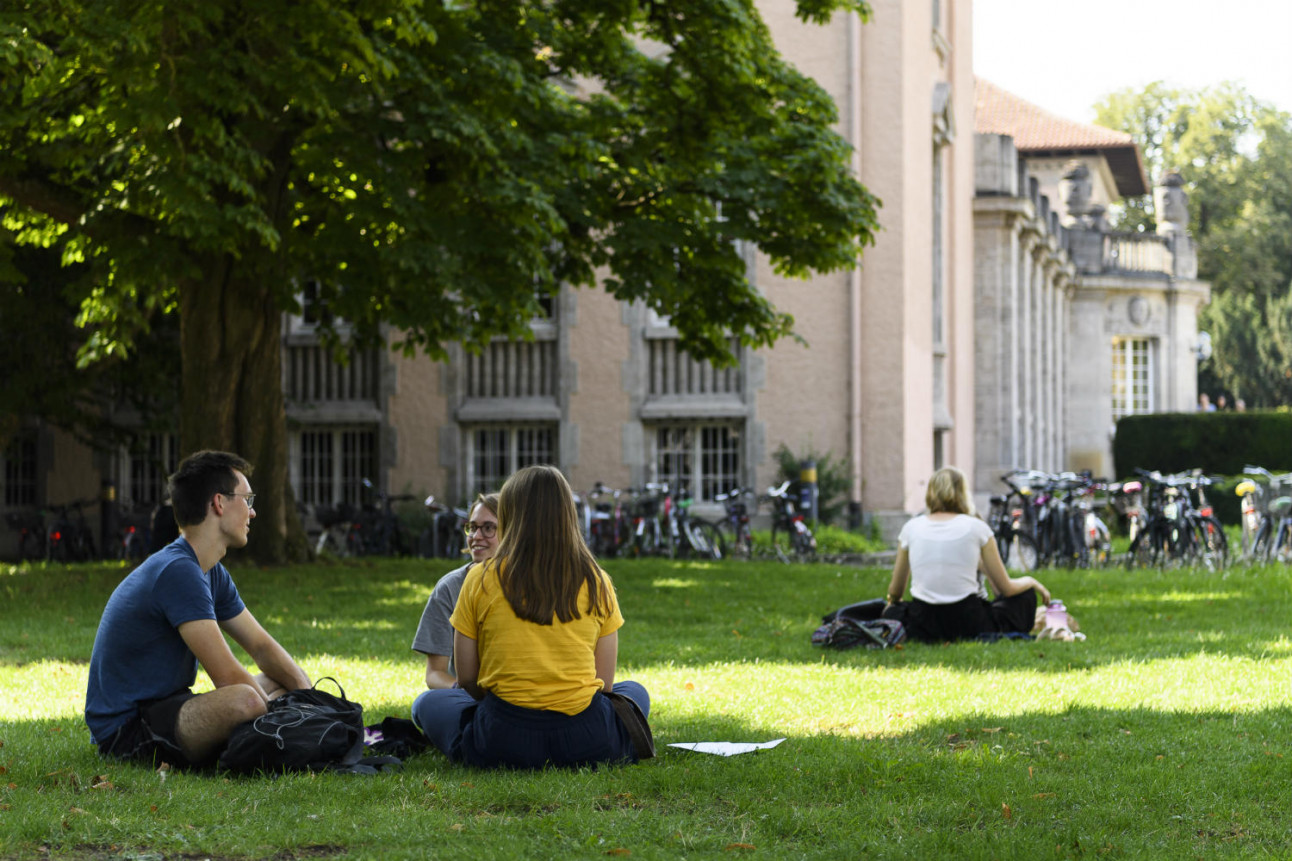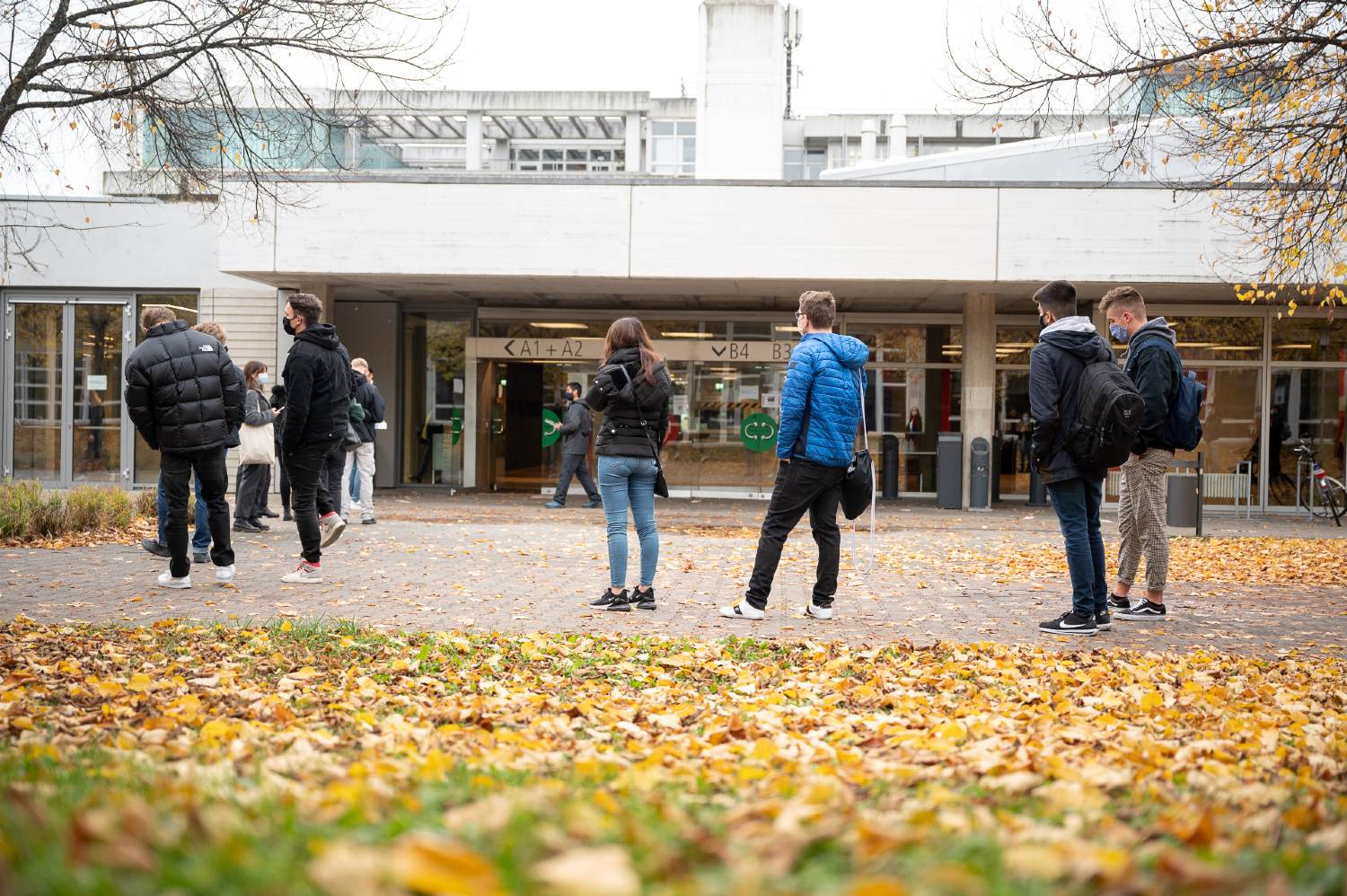This can hold especially true for master’s students who may already have had to pay costs or incur loans due to their bachelor’s degrees.
There are various means students can draw upon to help them during their studies, which we’ve outlined below.
Coronavirus-related support
As a result of the coronavirus crisis international students have been eligible to apply for an interest free loan of up to €650 per month. The application can be found here.
International students are also eligible for a non-repayable grant from the Ministry of Education and Research (Bundesministerium fur Bildung und Forschung) found here. It is important to note, however, that this additional help is so far only available until March 2021.
READ ALSO: International students: How to apply for new interest-free loans in Germany
BAföG
The Federal Training Assistance Act (Bundesausbildungsförderungsgesetz, or BAföG), is the primary resource for many students undertaking their studies in Germany. BAföG funding constitutes a generous needs-based grant and interest-free loan that helps many German students fund their courses and living situations.
It is only awarded to non-Germans in some cases. If you are an international student, it is definitely worth inquiring further about your eligibility or putting in an application.

Students taking their exams in Kassel in summer 2020. Photo: DPA
International or EU students who have long term right of residency in Germany, a parent or spouse who works in Germany, or have lived in Germany for five years prior to their studies may be able to receive financial support.
Students also qualify in certain circumstances if they have worked in Germany previously for a specific time frame, although often in a field related to their chosen course of study.
EU citizens studying in Germany can apply for BAföG if they have been working for 10 weeks in Germany without interruption, for an average of at least 12 hours a week according to the European Court of Justice.
The allocation of BAföG to foreign students is complicated and it is advised that you inquire at your local BAföG office to explain your individual situation.
READ ALSO: 10 words that perfectly sum up student life in Germany
Loans
It is important to research all loan options and particularly avoid those that have high interest rates before taking one on to finance your studies.
There are various governmental-funded and non-governmental funded student loan resources created to help students finance their studies.
We highly recommend first contacting your university to see if they have student loans available for foreign students.
Aside from this, Bildungskredit is a grant funded by the German government in association with a private banking group. It is not based on need and carries a low-interest rate. It is open to all students under the age of 26 for as much as €7,200 per year. Repayments kick in four years after graduation, and cannot exceed €120 a month.
Other student loan systems also exist, such as that offered by Deutsche Bank, that offer relatively low-cost student loans for account holders, as well as loans available through Sparkasse and HypoVereinsbank.
Part-time jobs
Although it is preferable to be able to focus on your studies entirely, many students may find that they need to take on part time work to finance their living costs, or perhaps for extra cash.
Luckily, it is common in Germany for organisations to offer student jobs, so that you could get a part-time job related to your field of study, gaining valuable work experience while also earning extra money.
If you can't find a student job then there are plenty of other opportunities to find part-time jobs. Under legal regulations, international students from outside the EU in Germany can work up to 120 days of the year.
READ ALSO: EU students turn to Germany as top study destination in light of Brexit
They can earn up to €450 per month tax fee before they would be required to pay into the German tax system. Those who want to work longer need to ask for permission from their local employment agency and the foreigners registration office.
You can ask about jobs at your university student services, or the local employment agency in your location.
Scholarships
Although not guaranteed in any way, scholarships are a great way to finance your studies and boost your CV at the same time.
One of the largest of these is the DAAD, or the German Academic Exchange Service. They offer opportunities for inbound and outbound students in Germany and have benefited millions of foreign students since their inception in 1925.

Archive photo shows students taking a break between classes at the University of Tübingen. Photo: DPA
They have a list of available scholarships including one specifically for master’s students and do not list any exceptional criteria as being needed to be eligible to apply.
It is important to note that the application should be submitted a year in advance to your course beginning. The master's scholarship finances your studies usually for one year however they offer longer term support for phD students as well as various short term loans.
The Deutschlandstipendium is another scholarship that is aimed at academically excellent students. The German government contributes half as well as private companies and organisations to make up to €300 per month per student, usually awarded for two semesters.
READ ALSO: In Numbers: Who are Germany's international students
This scholarship is awarded to students by the university itself and is usually given to students who excel academically.
There are also some private organisations that award scholarships to international students including the Max Plank Society Research and the Heinrich Boll Foundation Scholarship, with various stipulations such as academic excellence and involvement in social or political projects or organisations.





 Please whitelist us to continue reading.
Please whitelist us to continue reading.
This is your leading story?!